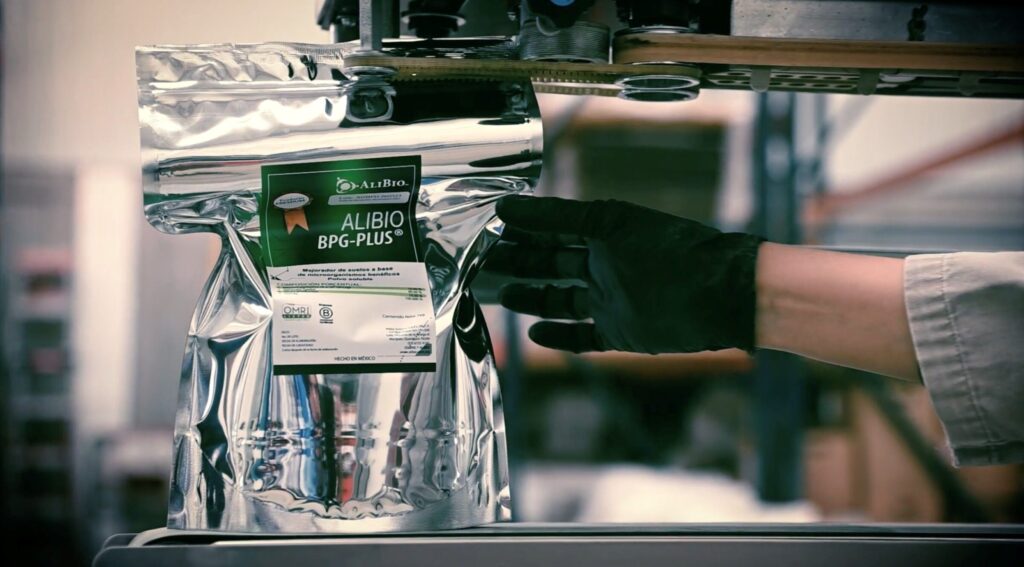For AliBio, structures and systems are at the core of what they offer. The microbial systems they offer parallel the complexity of the systems created by the agricultural industry in order to feed the world’s population. By selecting the most capable microorganisms and analyzing millions of data from their genetics and metabolism, AliBio has a clear mission: provide a product that can help support healthy land, healthy crops and healthy people.
The AliBio product line ─ which includes a microbial system for soils, a microbial foliar system and more ─ sets out to increase root biomass, promote growth, optimize fertilization and improve plant health, achieving a cost-benefit for the grower.
During the 2023 Salinas Biological Summit, much of the conversation included the need for biologicals that work within a system. These systems that offer a variety of support for crops to be resilient to environmental pressures, such as climate and pests, are the way forward to a more robust process to weather both actual and regulatory storms. The power of the products at AliBio pattern in parallel the higher need of the industry itself: it all comes down to systems. “We understand the approach of biological systems and how they work,” said Alfredo Suárez, founder and CEO of AliBio. “Therefore, our approach is to have a system that different types of bacteria work together.”
How these bacteria (and fungus, which is also an element to the work that AliBio does to best utilize biologicals) exist, function and provide benefits to soil and plants is complex and still largely unexplored. “It’s very complicated,” Suárez said. “The microbes are fantastic beings and have so many different functions. It’s very complicated to understand all these functions and how they work with the plant, with the soil because a microbe may have over 800 different mechanisms, and each one of those can work differently according to the crop, according to the soil, according to the weather.”
The results from the presence of biologicals in the production of food has been a component of human health and nutrition prosperity even before established agriculture—it’s the understanding of the how that required attention. Companies like AliBio, which has been doing this work for over two decades, are using research to translate the science of how these systems work and how they work together to harness the benefits they provide. As their knowledge of these complicated systems grows and they pass that information on to agricultural consumers, the benefits don’t require an education to be understood (though AliBio is happy to provide that). “What we have seen today is that when you apply our protocols and the system, the benefits are so amazing,” said Suárez. “And you can see them right away, visually. You can see the kind of production that you have and the quality of the products that you have. We’re very happy about it.” Suárez shared that one AliBio customer saw the growth of their avocados go from 150 grams to 225 grams without a change in quality.
Amid layers of complexity, the reason for using AliBio products throughout the growing cycle is the clear and simple result. For those working in the field, they want to avoid problems, and those managing the organization want a profitable yield. All of the science, both the known and not yet known, work in unison to make those seemingly simple objectives possible. As more elements continue to be added to the system in which food is grown (through regulation, pest evolution or environmental changes), AliBio is working to translate the language of the science so growers can use it to best integrate that information into the systems they know.


